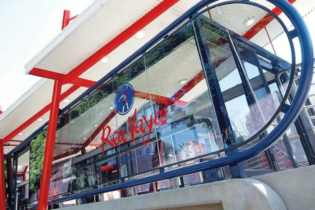By Martin Vergunst, business solutions executive at T-Systems South Africa
Cloud computing, mobility, Big Data and the Internet of Things (IoT) are converging to create unprecedented opportunities for logistics operators to better manage their assets and their vehicle traffic. For shipping ports, airports, warehouse dispatch centres, production sites, and fleet company yards, there are scores of benefits for adopting what we refer to as SmartHub Logistics (SHL). All of these environments have similar constraints: limited opportunity for expansion, growing volumes of cargo and traffic, high costs associated with downtime, and the constant drive to ‘do more with less’. An intelligent SHL platform integrates information from various different logistical functions within the yard and combines that data with external insights like local weather patterns or traffic congestion information. This provides operations managers with real-time information to help them allocate resources and create schedules in the most optimal way. A shipping port, for example, could consolidate real-time information from truck drivers, hauliers, parking space operators, port road management and vessel tracking systems. This data could be used to schedule and stagger the flow of trucks entering the port, off-loading or on-loading containers, and exiting the port. The result – fewer traffic jams, fewer ‘empty runs’, and shorter waiting times. In one of the world’s best examples of SHL, Germany’s Hamburg Port manages throughput of an astonishing 40 000 trucks and a quarter of a million shipping containers each day. Or – as another example – an airport could coordinate the arrivals schedule with the logistics of baggage handling services, refuelling, and disembarking equipment. We use the adage of making sure things are ‘at the right place at the right time’, to describe the coordination of these various logistical elements. Essentially, SHL platforms draw on the momentous leaps in three fields of technology:
• Mobility – geofencing, geolocation, telematics and mobile apps
• Cloud computing – hosted information services instantly made available to users wherever they may be
• Big Data – advanced analytics software which transforms data into actionable insights






